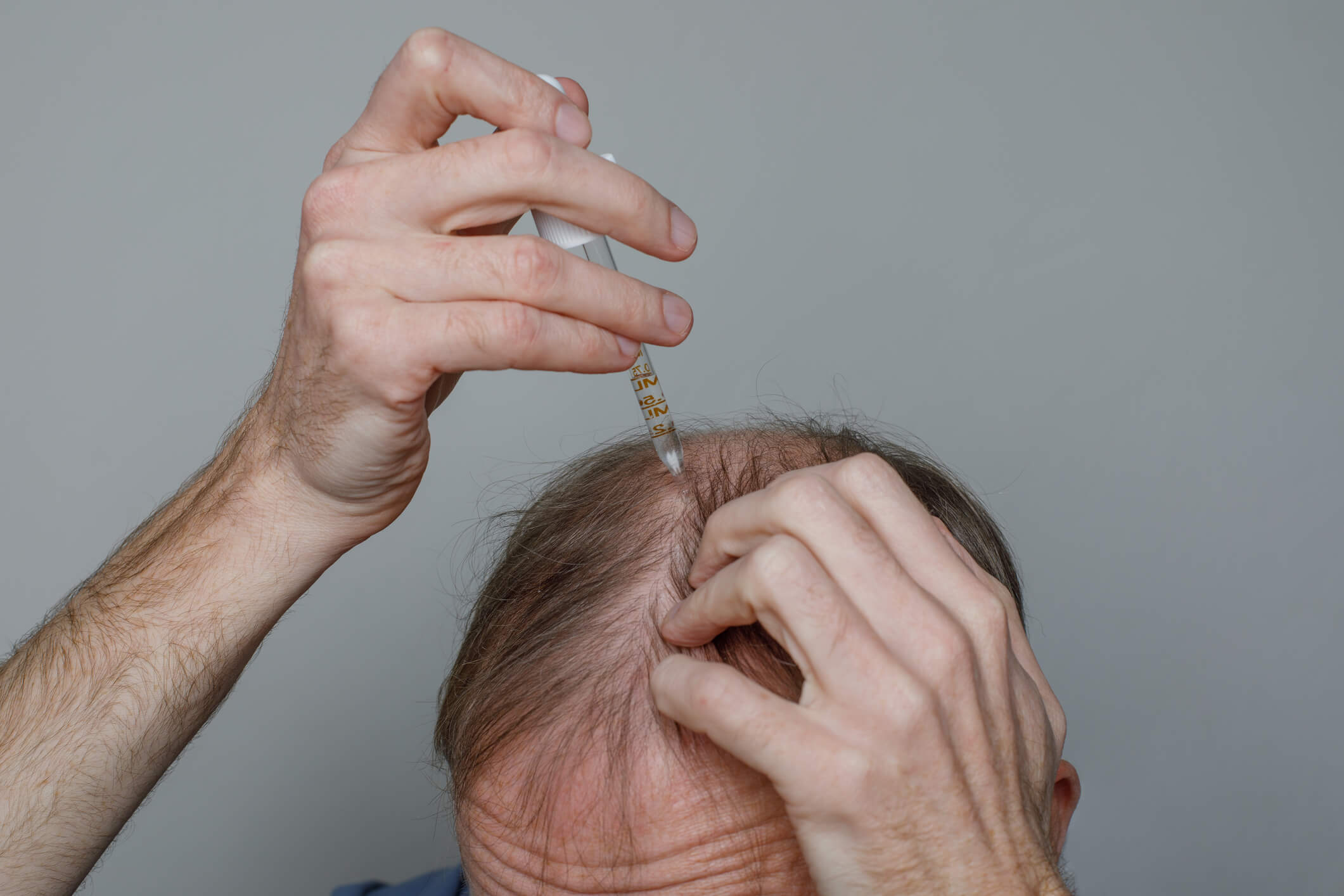Creatine is a widely used supplement in the fitness industry, particularly among athletes and bodybuilders, known for enhancing athletic performance, muscle mass, and strength. However, rumors have circulated that creatine may cause hair loss, sparking discussions among health professionals and fitness enthusiasts. While there is no conclusive evidence linking creatine to the loss of hair, concerns stem from the fact that it can elevate DHT levels, a byproduct of testosterone that may affect hair follicles. Some people believe this could lead to hair thinning, but these are often misconceptions. Side effects of Creatine use, such as nausea, are generally mild and temporary. It is essential to differentiate between myths and facts—while creatine enhances phosphocreatine stores for energy, its impact on hair health is still debated. Consulting with a doctor for accurate information and personalized advice is recommended for individuals concerned about hair thinning or other symptoms.
What is Creatine?
Creatine is a naturally occurring compound in trace quantities in foods such as fish and red meat. It is also generated by the body and stored in the muscles, where it is utilized as a rapid source of energy during high-intensity activities such as sprinting or weightlifting. When consumed as a supplement, creatine monohydrate enhances physical performance by increasing the body’s capacity to produce ATP (adenosine triphosphate) during brief periods of intensive activity. However, creatine supplementation can affect various organs, including the kidneys, liver, and pancreas. Excessive doses may lead to kidney damage or affect kidney function, potentially resulting in dehydration, muscle cramps, or water retention. Some individuals may also experience problems like weight gain or changes in testosterone levels. Additionally, while creatine can promote hair growth by stimulating the scalp, it is essential to be cautious of potential risks and monitor for adverse effects.
The Connection Between Hair Loss and Creatine
The primary concern regarding creatine and loss of hair is its potential to elevate the levels of a hormone known as dihydrotestosterone (DHT). DHT, a testosterone derivative, has been associated with hair loss, particularly in individuals who are predisposed genetically to male-pattern baldness. High levels of DHT inhibit hair follicle growth, resulting in thinner hair and, ultimately, hair loss.
A small research conducted in 2009 is the source of the connection between Creatine and DHT. In this investigation, the levels of DHT in the blood of young male rugby players who consumed creatine were significantly elevated. The study specifically discovered that DHT levels increased by approximately 56% during the first week of creatine supplementation and remained elevated by 40% during the second and third weeks due to the three-week dose.
Nevertheless, it is crucial to acknowledge that this investigation only encompassed a limited number of athletes, and the results are not definitive for the general populace. Furthermore, other research has not consistently substantiated the assertion that being in a supplement induces hair loss. Large-scale studies have not conclusively associated creatine with hair loss in the general population.
Additional Factors Influencing Hair Loss
Loss of hair is a multifaceted issue that various factors, such as heredity, hormonal imbalances, diet, stress, and lifestyle choices, can influence. Although creatine may have a minimal effect on DHT levels, it is improbable that it is the sole cause of hair loss. Hair thinning may occur in individuals predisposed genetically to male pattern baldness, irrespective of whether they consume creatine.
It is also essential to consider that not all individuals who consume creatine will experience hair loss or elevated DHT levels. Numerous creatine users report that their hair does not experience any discernible changes, which implies that individual responses may differ.
What does this imply for you?
Here are a few factors to take into account if you are concerned about the potential correlation between creatine and loss of hair:
- Hair Loss and Genetics: Hair loss may be more prevalent in individuals with a family history of male or female-pattern baldness, regardless of their use of creatine.
- Monitor Your DHT Levels: If you are concerned about creatine’s potential impact on your DHT levels, you can monitor your hormone levels by conducting blood tests and consulting with a healthcare professional.
- Alternative Supplements: If you are experiencing hair thinning or loss while taking creatine, you may wish to investigate alternative supplements that do not affect DHT, such as beta-alanine, or concentrate on maintaining a healthy diet and exercise routine to stimulate muscle growth without the use of creatine.
Link Between Creatine and Dihydrotestosterone (DHT)
Dihydrotestosterone (DHT) is a potent androgenic hormone produced from testosterone. It is implicated in hair loss, particularly in individuals predisposed genetically to male pattern baldness (androgenetic alopecia). However, it also plays a significant role in male sexual development. DHT has emerged as a dominant topic in discussions regarding potential causes of hair loss due to its involvement in hair follicle miniaturization and thinning.
The Potential Impact of Creatine on DHT Levels
The primary concern regarding creatine and hair loss is its potential impact on DHT levels. Creatine, a supplement that bodybuilders and athletes widely use, is thought to enhance the process of testosterone conversion into DHT. Although the mechanism underlying this phenomenon remains incompletely comprehended, a 2009 study provides insight into the potential impact of creatine on the production of DHT.
The Creatine and DHT Study of 2009
In a study conducted on young male rugby players, researchers discovered that creatine supplementation substantially increased DHT levels. Creatine was administered to the study participants at 25 grams per day during the “loading phase” for 7 days, followed by a maintenance dose of 5 grams per day. The results indicated that:
- Week 1: Creatine supplementation for a single week resulted in a 56% rise in DHT levels.
- Weeks 2 and 3: The levels of DHT remained elevated in the second and third weeks, although the increase was less significant, at approximately 40%.
This research implies that creatine supplementation may elevate DHT levels; however, it fails to establish a direct correlation between creatine consumption and loss of hair. The study concentrated solely on some adolescent male athletes, and the rise in DHT was transient.
The Reason for the Uncertainty of the Link
The evidence connecting creatine to the loss of hair remains ambiguous for a variety of reasons despite the findings of this study:
- Limited Research: Although this solitary study indicates that creatine increases DHT levels, other studies have not consistently substantiated that creatine results in substantial increases in DHT. Creatine’s effects may differ among individuals.
- Small Study Size: The results of the 2009 study, which included only 20 participants, may need to be more generalizable to the general population due to its small sample size. To establish a definitive correlation between hair loss and creatine, it is necessary to conduct more extensive and comprehensive studies.
- Genetic Predisposition: Genetic predisposition is the primary factor contributing to the loss of hair caused by DHT. Regardless of the use of creatine, individuals with a family history of those who suffer from androgenetic alopecia are more susceptible to hair loss as a consequence of elevated DHT levels. The rise in DHT may not cause any discernible hair loss for those without this genetic predisposition.
What does this imply for individuals who use creatine?
Here are a few factors to consider if you are contemplating the use of creatine and are concerned about potential hair loss:
- Genetics: The impact of DHT on your hair is significantly influenced by your genetic composition. If you are predisposed genetically to male-pattern baldness or female-pattern hair thinning, creatine may accelerate the process; however, this is not assured.
- Temporary Rise in DHT: The evidence suggests that the rise in DHT resulting from creatine supplementation is temporary. DHT levels typically stabilize or diminish over time following the initial increase.
- Monitor Your Hair: If you are apprehensive, you should monitor any changes in your hair or consult a healthcare provider to discuss your concerns and measure your DHT levels.
- Alternatives to Creatine: If you are experiencing hair thinning or other adverse effects associated with creatine, you may investigate alternative supplements or concentrate on natural methods to enhance muscle growth, such as modifying your diet and exercise regimen.
Conclusion
Although the connection between the cranial and loss of hair is still debated, insufficient evidence suggests that the cranial causes substantial hair loss in the general population. Loss of hair is not a universal consequence of creatine supplementation, although it may elevate DHT levels in specific individuals. Creatine supplements, often used to enhance workout performance, can be part of a broader protein and nutrition plan. Still, it’s essential to evaluate the amount and the process of creatine loading. For some people, the risk of hair thinning may increase, especially if they are predisposed to it. Concerned about potential hair thinning? Consulting with a healthcare professional or exploring alternative supplements may be beneficial, particularly if you are considering a creatine supplement. As with any supplement, evaluating the risks and benefits relative to your health, hair treatment, and fitness objectives is crucial.
Frequently Asked Questions
Should I stop using creatine if I see hair loss?
If you observe hair thinning or other changes after taking creatine, discontinue its use and observe whether your hair improves. If the condition persists, consult with a healthcare provider for a more comprehensive assessment of your hormones and potential etiologies of hair loss.
Is it possible to use creatine safely if I am already experiencing hair loss?
It is crucial to consult with a healthcare professional before initiating creatine use if you are currently experiencing hair loss or have a family history of pattern baldness. They can assist in determining whether creatine supplementation is appropriate for you based on your health factors and concerns about hair loss.
What actions can I take if I am concerned about the potential for hair loss due to creatine?
If you are worried about balding, consider alternative supplements that do not affect DHT, such as beta-alanine or branched-chain amino acids (BCAAs). Furthermore, you can ensure that creatine is used safely by adhering to a balanced diet, managing tension, and consulting a healthcare provider.
Is the hair loss caused by creatine permanent?
There is no evidence to imply that creatine induces permanent hair loss. Typically, any rise in DHT levels resulting from creatine is temporary and will stabilize over time. Nevertheless, the effects of elevated DHT may help with hair thinning over time if you are genetically predisposed to hair loss.
Is it possible to consume creatine without stressing about balding?
Significant hair reduction is unlikely to result from creatine consumption if one has no genetic predisposition to the loss of hair. Creatine is generally safe for consumption without causing hair loss in most individuals. Nevertheless, if you are apprehensive, you should monitor your hair’s condition and seek a physician’s advice.
Do you need to transition off creatine to prevent hair loss?
There is insufficient conclusive evidence to suggest that intermittent creatine use is beneficial for preventing hair loss. Nevertheless, some users cease their creatine intake to investigate its impact on their hair health. If you are apprehensive about the potential adverse effects, it may be beneficial to experiment with cycling or reducing the dosage.
Is it possible for women to experience hair loss with creatine?
The impact of creatine on testosterone and DHT levels is more frequently associated with hair loss in men. However, women who are genetically predisposed to androgenetic alopecia may also experience hair thinning. Nevertheless, the impact of creatine on DHT levels in women has yet to be as thoroughly investigated as it has in men.
Can creatine induce hair thinning in individuals who do not have a family history of hair loss?
Insufficient evidence suggests that creatine induces hair thinning in individuals with a genetic predisposition to androgenetic alopecia. As a result of the rise in DHT levels, creatine may not induce hair loss in all individuals, especially those without a family history of hair loss.
What are the indicators that my hair is being affected by creatine?
Signs of balding from creatine use may include a receding hairline, sparse hair, or increased shedding. If you observe these modifications, it may be beneficial to temporarily discontinue creatine supplementation to determine whether the hair loss has subsided.
Is it possible to mitigate the effects of creatine on hair loss by combining it with other supplements?
No evidence suggests that combining creatine with other supplements can substantially reduce its potential impact on hair loss. Nevertheless, the potential adverse effects on hair may be alleviated by consuming creatine with supplements that promote hair health, such as biotin, zinc, or saw palmetto (a natural DHT antagonist). It is imperative to seek the advice of a healthcare provider before combining supplements.
Understanding Creatine and Hair Loss
Are you apprehensive that your hair may be being impacted by your creatine supplement? Although creatine is frequently employed to improve athletic performance, certain studies indicate it may elevate Dihydrotestosterone (DHT) levels. This hormone is associated with hair thinning in individuals who are predisposed genetically to male or female patterned baldness. At Neograft Hair Restoration Orange County, we recognize the significance of achieving your fitness objectives and preserving the health of your tresses. Suppose you are apprehensive about the impact of creatine on your hair. In that case, adopting a comprehensive approach that emphasizes using hair care products that promote scalp health, stress management, and balanced nutrition is crucial.
It is advisable to consult with a healthcare provider before modifying your supplement regimen if you are experiencing hair depletion. You may investigate treatments such as Minoxidil (Rogaine) or DHT antagonists to mitigate hair loss. Furthermore, we suggest exercising caution when considering hair loss remedies that are unverified and may not be appropriate for your specific requirements. At Neograft Hair Restoration Orange County, we are committed to assisting you in maintaining your hair’s health while promoting your fitness journey. Please contact us for a consultation, and we will assist you in finding a solution suitable for your hair health and performance.




Recent Comments